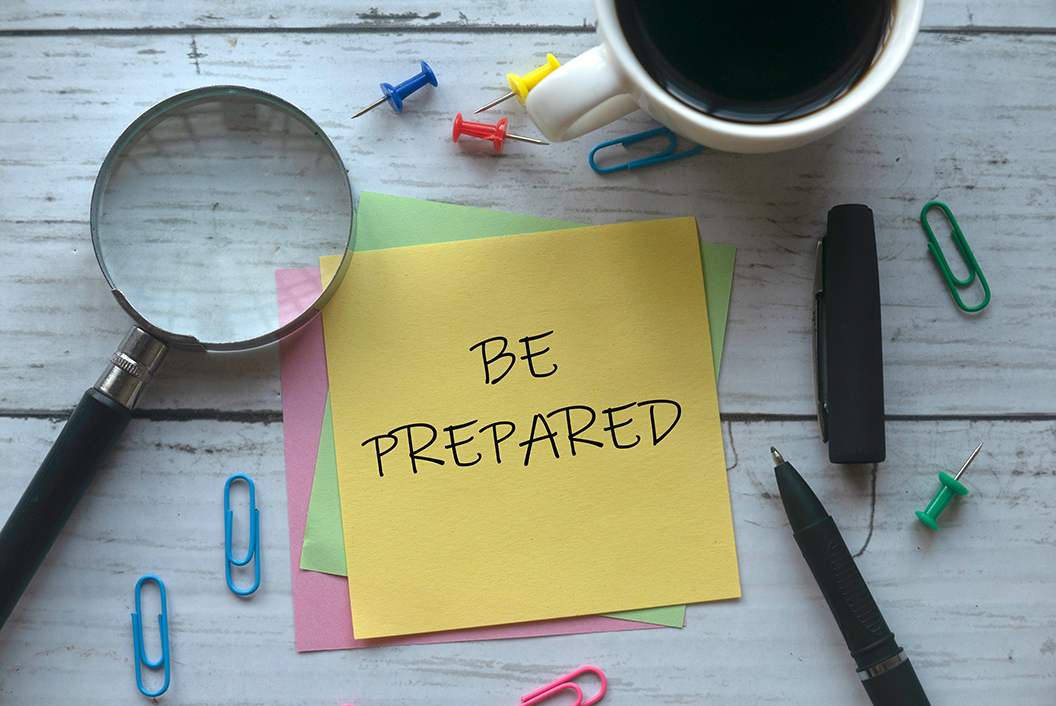 In a rapidly evolving world marked by the unpredictability of natural disasters, health crises, and economic fluctuations, being proactive about both emergency preparedness and financial security has never been more important. As we navigate through a landscape fraught with unexpected challenges, having a well-constructed strategy to shield ourselves and our loved ones becomes imperative. If you’re looking to safeguard your financial health, read on for seven important steps you can take to enhance your emergency preparedness and financial security.
In a rapidly evolving world marked by the unpredictability of natural disasters, health crises, and economic fluctuations, being proactive about both emergency preparedness and financial security has never been more important. As we navigate through a landscape fraught with unexpected challenges, having a well-constructed strategy to shield ourselves and our loved ones becomes imperative. If you’re looking to safeguard your financial health, read on for seven important steps you can take to enhance your emergency preparedness and financial security.
- Create a Comprehensive Emergency Plan – The foundation of preparedness is a well-thought-out emergency plan. Identify potential risks in your area, such as earthquakes, hurricanes, or power outages, and tailor your plan accordingly. Make sure every member of your household understands the plan, knows how to evacuate, and has a designated meeting point. Compile essential documents like medical records, insurance policies, and identification, and keep them in a waterproof container for easy access.
- Build an Emergency Kit – An emergency kit is your lifeline during times of crisis. Include non-perishable food, water, medications, a first aid kit, a flashlight, batteries, a multi-tool, and personal hygiene items. Consider the specific needs of your family, including infants, elderly members, and pets. Regularly check and update your kit to ensure all items are in good condition and within their expiration dates.
- Prioritize Your Health and Well-Being – Maintaining good health enhances your ability to handle emergencies. Adopt a healthy lifestyle through regular exercise, balanced nutrition, and adequate sleep. Keep up to date with vaccinations and preventive health check-ups. In emergencies, physical and mental well-being play an important role, so consider learning basic first aid and stress management techniques.
- Build an Adequate Emergency Fund – Financial security is as important as physical preparedness. An emergency fund can provide a safety net during unexpected events like medical emergencies or job loss. Strive to save three to six months’ worth of living expenses in a separate savings account. This fund should be easily accessible, but not so easily accessible that you’re tempted to dip into it for non-emergencies.
- Diversify Your Income Streams – Relying solely on one source of income can be risky in uncertain times. Explore opportunities to diversify your income, such as freelancing or consulting, part-time jobs, or investing in side projects. Developing multiple streams of income not only boosts your financial security but also enhances your adaptability to changing economic landscapes.
- Review and Update Insurance Coverage – Insurance is a cornerstone of financial security. Regularly review your insurance policies, including health, home, auto, and life insurance to ensure that your coverage aligns with your current needs and circumstances. For example, if you’ve acquired new assets or experienced significant life changes, adjusting your insurance coverage may be necessary to adequately protect your investments.
- Invest in Financial Education – Knowledge is a powerful tool for securing your financial future, so it’s important to take the time to educate yourself about personal finance, budgeting, investing, and retirement planning. Understanding these concepts empowers you to make informed decisions that align with your long-term financial goals. If you feel overwhelmed by the world of finance, consider seeking advice from financial experts or attending workshops to deepen your understanding.
Fortifying Your Emergency Preparedness and Financial Security
In a world where uncertainties, taking steps to boost your emergency preparedness and financial security can help ensure the safety of your loved ones. By following these seven steps, you can be better equipped to navigate through unexpected challenges while maintaining your financial stability. Remember, preparedness is not just about physical readiness; it’s about ensuring you have the financial resources and resilience to weather any storm that comes your way.
If you’d like to discuss ways we can help you be better prepared, feel free to contact our office at (603) 261-3736 to schedule your no-obligation consultation.
Sources:
- [1] https://www.redcross.org/get-help/how-to-prepare-for-emergencies/survival-kit-supplies.html
- [2] https://www.investopedia.com/best-resources-for-improving-financial-literacy-5091689

 Bob has a passion for making your money work hard for you. He takes profound joy in ironing out a plan for a long and comfortable retirement, no matter what your current income or level of wealth. With a work ethic second to none, he has a zeal for transforming uncertainty into stable ways for you to protect your future and your family. He knows that the quality of your life you enjoy today can remain as rewarding—or even better—after retirement.
Bob has a passion for making your money work hard for you. He takes profound joy in ironing out a plan for a long and comfortable retirement, no matter what your current income or level of wealth. With a work ethic second to none, he has a zeal for transforming uncertainty into stable ways for you to protect your future and your family. He knows that the quality of your life you enjoy today can remain as rewarding—or even better—after retirement. With a strong background in information technology, Carol is instrumental in building operational policies and strategies that keep the organization functioning smoothly. Carol’s organizational skills and her flexibility to jump from priority to priority along with her commitment to customer service makes her an essential part of the Grimard Financial team. When Carol is not working with the Grimard Financial Family, she is a very creative and accomplished photographer.
With a strong background in information technology, Carol is instrumental in building operational policies and strategies that keep the organization functioning smoothly. Carol’s organizational skills and her flexibility to jump from priority to priority along with her commitment to customer service makes her an essential part of the Grimard Financial team. When Carol is not working with the Grimard Financial Family, she is a very creative and accomplished photographer.